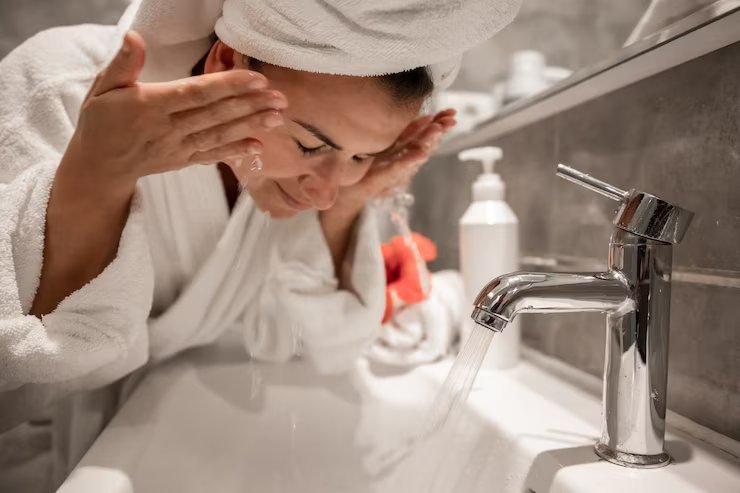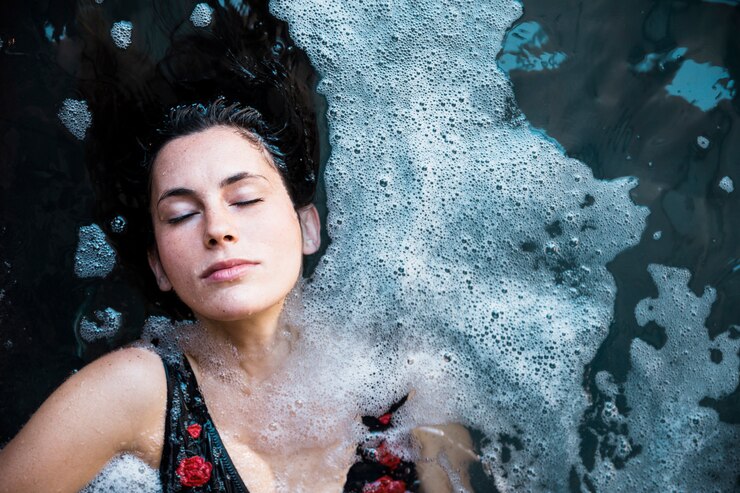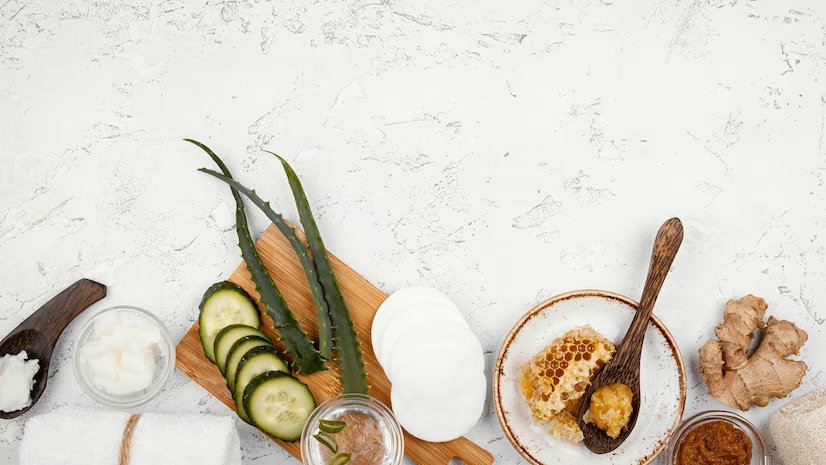Skincare is an integral component of our everyday lives, and everyone has their own set of beliefs and habits for taking care of their skin. Unfortunately, not all skincare practices are created equal; some can actually be harmful or ineffective. Many myths about skincare have circulated for years leading people down paths that damage their skin. Dermatologists are experts when it comes to debunking myths regarding skincare; therefore it’s essential that we know which myths are real or false before making choices that damage it further.
Dermatologists possess the expertise necessary to distinguish fact from fiction and provide you with sound advice on how to care for your skin. Some of the more prevalent myths debunked by dermatologists include the belief that natural ingredients are always superior, exfoliation should take place daily and sunscreen only needs to be worn on sunny days. By consulting a dermatologist you can gain accurate advice regarding skincare while avoiding potential risks associated with following untruths and unfounded beliefs.
1. Washing Your Face More Often Will Prevent Acne

One of the more widely held skincare myths is that washing your face more frequently will prevent acne breakouts. But dermatologists warn against this approach, since overwashing may strip away natural oils and disrupt your skin’s pH balance causing dryness, irritation, and breakouts to surface more often than normal. Instead, dermatologists advise using a gentle cleanser designed for your specific skin type twice daily- once in the morning and once at bedtime – to maintain an effective regimen.
Avoid harsh scrubs and exfoliants which may cause micro-tears in the skin and lead to further inflammation and acne breakouts. A healthy skincare routine including eating healthily, staying hydrated and not touching your face will be far more effective at combatting acne and skin problems than any harsh scrub can ever be.
2. Using Hot Water Will Open Up Pores

One of the more pervasive skincare myths is that using hot water will open your pores. Unfortunately, this is far from accurate: according to dermatologists, pores don’t contain muscles to open or close; their size depends solely on genetics as well as other factors like age, hormones and sun damage. Furthermore, using hot water on your face may actually strip it of its natural oils, leading to dryness and irritation.
As part of an effective facial cleansing routine, it is recommended to use lukewarm water rather than hot water when cleansing your face and using gentle products to keep skin hydrated and healthy. So the next time you wash your face, remember to use lukewarm water so as not to damage its delicate tissues.
3. You Can’t Get A Sunburn On A Cloudy Day

One of the more prevalent skincare myths that people believe is that you cannot get sunburn on cloudy days. Unfortunately, this is far from being the truth: according to dermatologists, up to 80% of UV rays from the sun penetrate clouds and reach your skin, even on cloudy days; thus increasing your risk for sunburn without adequate protection if not using sunscreen with at least an SPF 30 protection factor. Therefore, wearing SPF-30 protection during cloudy weather days is necessary in order to stay protected against sunburns.
Dermatologists advocate reapplying sunscreen every two hours and after swimming or sweating to protect your skin and reduce sun damage and cancer risks. By disproving this myth, dermatologists aim to raise awareness of sun protection measures that may save lives while protecting individuals against further skin cancer risks.
4. Toothpaste Is An Effective Acne Treatment

One of the more persistent myths in skincare is that toothpaste can effectively treat acne. Unfortunately, this simply isn’t true. Although toothpaste may contain ingredients such as baking soda or hydrogen peroxide that help dry out pimples quickly, other ingredients present can irritate the skin and contribute to further breakouts. Furthermore, toothpaste was never intended for use on human skin and may disrupt its delicate balance of oils and bacteria that is found within.
Dermatologists advise using acne treatments designed specifically for your skin type, such as benzoyl peroxide or salicylic acid. Before trying any new acne treatments, always consult with a dermatologist in order to make sure they will be safe and effective against acne for you.
5. Tanning Beds Are Safer Than The Sun

Tanning beds may appear to offer an effective solution for sun exposure, but dermatologists quickly dispel that myth. Tanning beds emit UV radiation that is just as dangerous – in fact, studies have demonstrated that using tanning beds before age 35 increases your risk of melanoma by 75%!
Dermatologists advise against tanning beds altogether and advise using broad-spectrum sunscreen with SPF 30 or higher instead, seeking shade during peak sun hours and donning protective clothing such as hats and sunglasses to shield the skin from UV rays. Prioritize skin health over short-term tanning tans!
6. You Can’t Get A Sunburn In The Winter

One of the more frequent skincare myths is that winter sunburns don’t exist, which is far from true. Though sun rays may feel less intense in colder months, they still pose significant danger to your skin – reflecting up to 80% of UV rays can still damage skin; Dermatologists advise wearing protective clothing like hats and sunglasses as an extra safeguard to avoid sun damage during this season.
Remembering that UV rays can penetrate clouds and reach your skin is key to safeguarding it all year long, regardless of weather. By disproving this skincare myth, dermatologists aim to educate individuals on the value and significance of sun protection for achieving overall skin health.
7. Blackheads Are Caused By Dirt

One of the more widely held skincare misconceptions is that blackheads are caused by dirt. In reality, however, this couldn’t be further from reality: blackheads form when dead skin cells and extra oil clog up your pores, leading to their eventual oxidization and transformation into blackheads – this process has nothing to do with dirt; in fact, over-cleansing may increase blackhead formation by stripping away natural oils produced by your body and prompting more production to compensate.
Dermatologists advise using gentle exfoliants such as salicylic acid to unclog pores and prevent blackheads. Furthermore, comedogenic products should be avoided as these could clog your pores further leading to blackhead formation. By understanding what causes blackheads in your own skin you can take the necessary steps in order to keep it clear and healthy.
8. You Only Need To Wear Eye Cream At Night

One of the biggest misconceptions in skincare is that eye cream should only be worn at night. Dermatologists advise applying eye cream twice daily; once in the morning and once at night. Skin around your eye area is delicate and thin, making it more vulnerable to wrinkles, fine lines, and puffiness than other areas.
Applying eye cream twice daily will protect the delicate skin around your eyes from environmental stresses and keep it hydrated, as well as help to diminish dark circles and puffiness. In order to maintain youthful-looking eyes, be sure to follow dermatologist recommendations by applying two coats of eye cream every day – it could help!
9. Natural Ingredients Are Always Better For Your Skin

One of the more widespread skincare myths is that natural ingredients are always better for your skin. While certain natural ingredients may have positive benefits for certain types of skin types, dermatologists advise using products made up of scientifically backed ingredients instead of natural options like essential oils and citrus extracts which could cause irritation or allergy reactions and sun sensitivity.
Synthetic ingredients may actually be more effective and safer than natural ones, so it’s wise to conduct thorough research and consult a dermatologist before blindly following trends and myths about skincare. Finding products and ingredients tailored specifically to meet your skin care needs and concerns is the goal here.
10. You Don’t Need To Wear Sunscreen If You Have Dark Skin
One of the more pervasive skincare myths is that people with darker skin don’t need sunscreen, which couldn’t be further from the truth. Although darker skin tones possess more melanin to provide some protection from UV radiation damage, that doesn’t make them immune from its damaging effects – in fact melanoma, an aggressive form of skin cancer often takes longer to detect on dark-skinned individuals than it would on people with lighter complexions.
Dermatologists advise everyone, regardless of skin tone, to use sunscreen with an SPF rating of at least 30 for maximum UVA and UVB ray protection. Reapply sunscreen every two hours when spending time outdoors or sweating heavily – don’t rely on dark skin alone as protection – protecting it with sunscreen is crucial for maintaining healthy skin!
Conclusion
The internet is full of skincare myths that many believe to be accurate; however, dermatologists have disproved many of them and set the record straight. A common misperception about acne is that it can only be caused by poor hygiene; in reality it can also be caused by genetics and hormones. Another widespread misunderstanding about wearing sunscreen on cloudy days is that harmful UV rays penetrate through clouds to damage skin and cause further problems – these should always be protected against.
Dermatologists stress the importance of using skincare products specifically tailored for your skin type, while avoiding harsh scrubs that could damage its protective barrier. Therefore, it’s wise to seek advice from a dermatologist prior to believing any misinformation regarding skincare myths.
Also Refer : 10 Skincare Mistakes You’re Making And How To Fix Them

